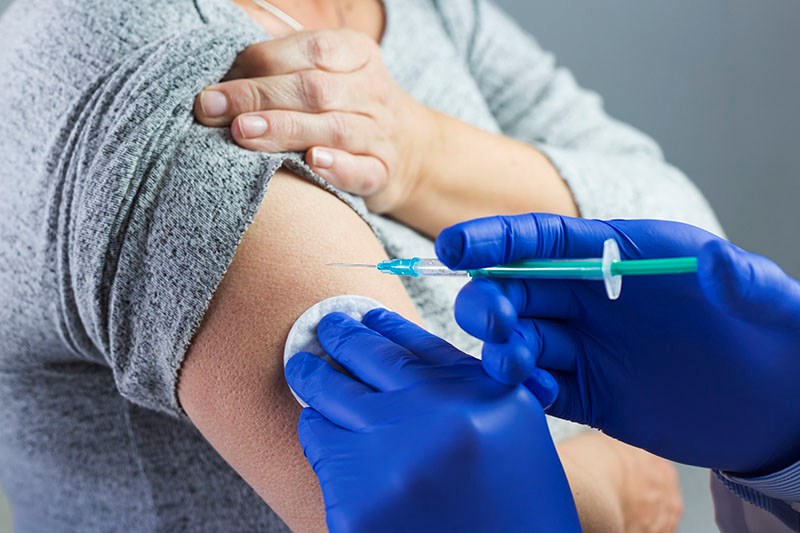Close to three-quarters of Manitoba’s 63 First Nations will have received COVID-19 vaccine allocations equal to as much as 75 per cent of their members by the end of the week and some that started their mass vaccine campaigns earliest have already administered first doses to every adult who wanted one.
Melanie MacKinnon, a member of Manitoba’s vaccine implementation task force, said during an April 13 Manitoba Keewatinowi Okimakanak (MKO) Facebook press conference that 37,500 of 40,000 first doses allocated to Manitoba First Nations for vaccination campaigns will have been distributed by the end of the week and that the last shipments of initial doses are expected to arrive in Manitoba around the same time.
“It’s been a very successful campaign in regards to distribution,” she said, as First Nations, with assistance from the Canadian Armed Forces and other organizations like the Red Cross, attempt to deliver 100,000 vaccine doses in 100 days. “Now we need those vaccines in arms.”
Although there has been vaccine hesitancy in some First Nations, MacKinnon said in others uptake is as high as 75 tp nearly 80 per cent of adults.
“More and more people are wanting to be immunized so that’s fantastic news,” MacKinnon said.
Dr. Michael Routledge, medical advisor to MKO’s health organization Keewatinohk Inniniw Minoayawin Inc., said vaccine hesitancy is nothing new and urged anyone with questions to ask a trusted health care professional rather than relying on information from social media or other sources, which may not be scientifically valid.
“They work,” he said. “We’ve seen that around the world.”
Despite the effectiveness of vaccines, MKO First Nations are still a long way from herd immunity, he said, and COVID-19 test positivity rates in Northern Manitoba remain “stubbornly high,” hovering around the 15 per cent level, on average
A pop-up vaccination clinic for Cross Lake First Nation members living off-reserve is taking place in Thompson April 14-17 at 90 Thompson Drive North.
Although travel to the north or any unnecessary travel isn’t recommended at this time, Routledge said getting vaccinated is a worthwhile reason.
“Obviously any travel presents some risk but we need people to travel to immunization sites to get vaccinated,” he said
MKO Vice-Chief Shirley Ducharme of O-Pipon-Na-Piwin Cree Nation at South Indian Lake said her community, which saw more than 100 COVID-19 cases at one point, has already provided two doses of vaccine to all elders 65 and older and first doses to frontline workers, with clinics for all adults scheduled for April 21-22.
She also said that partnerships with the military and other organizations have been welcome in a smaller First Nations like hers with limited resources.
“We only have limited frontline workers and they do burn out,” Ducharme said.
As of April 8, nearly 23,00 First Nations people in Manitoba have received COVID vaccines, including about 6,500 who have received two doses. In the NRHA, 8123 First Nations people have received first doses and 2,844 have also gotten second doses.
MacKinnnon says those numbers probably reflect what the situation was at the end of March as there can be a lag getting information entered into the tracking system because many First Nations don’t have electronic health records and some have internet connectivity issues.




